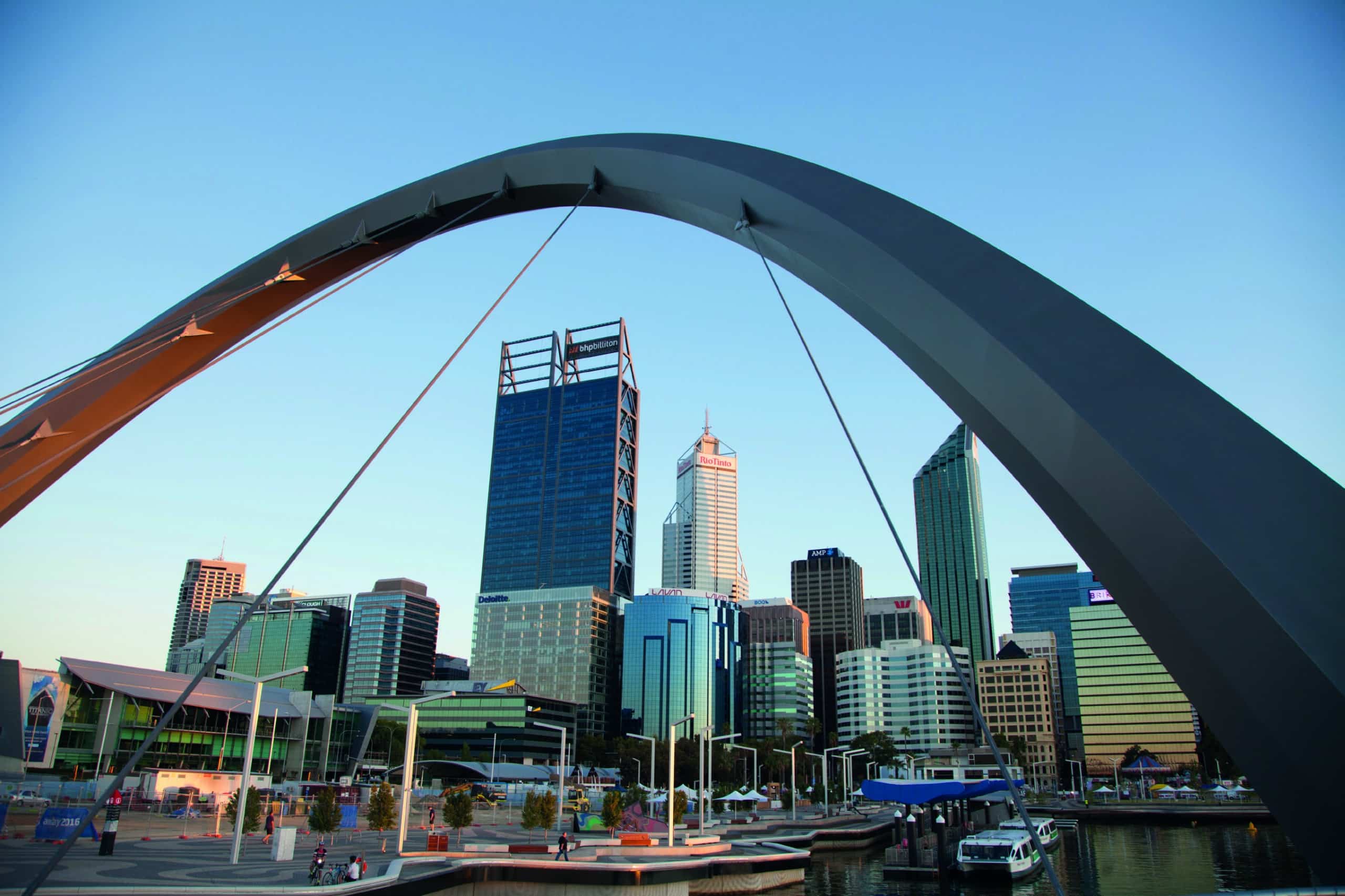CCI CEO Chris Rodwell says ratification of trade agreements and reducing the corporate tax rate need to stay at the forefront of government policy if Australia is to remain competitive in an increasingly globalised world.
Speaking at the CCI-ANZ Economic breakfast to almost 500 business leaders on Tuesday, Rodwell said that after spending 10 years abroad he was passionate about helping WA look beyond some of its traditional industries to seize opportunities in space, defence, energy, tourism, international education and trade.
“If our state’s future is to be a compelling one, we need to move faster and act differently. This means integrating into global value chains, capturing new sources of innovation, new sources of investment, deploying better models for innovation and setting the course of the workplace of the future where digital transformation becomes the norm,” he said.
“It seems apt, particularly this week with the historic flight to the UK, that we can perhaps term this as the Dreamliner effect. And I urge the Government at national and a state level, business and the broader community to recognise that there is real potential for this city and this state to be a central pivot to the Indo Pacific region and beyond.”
Rodwell warned that if the state failed to restructure as it entered another growth period, it would put the WA economy at serious risk, especially in trade.
“You just need to look at what’s been happening with the US, where President Donald Trump has sent global markets tumbling, most recently with $60b worth of tariffs on imported Chinese goods,” he said.
“You may think Australia missed that one and our exemption means that we escaped free. But we don’t escape free because the flow-on effect in global trade is a rise in protectionism. We need to reject any instinct for retaliation and, in my mind, there couldn’t have been a better repost to that than when we signed up the TPP (Trans-Pacific Partnership).
“It’s our ratification of trade agreements over the past decade that has been unparalleled and has to be at the forefront of government policy if we want to stay competitive in a globalised world.
“Those trade agreements can only take us so far. If we truly want to be a force to be reckoned with on the global stage, then we need to be backed by a more competitive tax regime starting with a reduction in corporate tax.
“Why? Because investment capital is globally mobile and our corporate tax rate is making it difficult to attract investment we need.”
He said that reducing the tax rate from 35 per cent to 25 per cent was not a big ask compared with what other countries are doing around their corporate tax rates.
ANZ Chief Economist Richard Yetsenga warned that technology was driving change across the world including the way tech companies become more powerful the larger they grew and in the way they invest.
He said says tech companies now made up seven of the top 10 largest companies in the world based on market capital.
“Technology companies have pretty unique characteristics, they break one of the foundational laws of economics … diminishing marginal returns that as business get bigger they get more inefficient,” he said.
Yetsenga said they don’t invest in ‘steel and cement’ like traditional companies, with Uber not owning any cars and Amazon not owning any shops.
“We are in an increasingly digital world and people aren’t investing using the same stuff. It’s a different type of investment.
“I don’t know if I have worked out how exactly that is going to change the world, that investment piece, but it sure looks different to me.
“One question is ‘why now?’ I think we have just reached the point where technology has improved enough that it is not just a manufacturing and commodity story because they have dealt with technology changes for decades but now it is the service sector story.”
Yetsenga used the examples of how the world’s faster super computer in 2016 was 40 times faster than its 2010 equivalent and how one autonomous vehicle can collect about a terabyte of data a day to illustrate the cracking pace.
“It just seems like the rate of change has reached a point that the power is almost beyond our ability to understand … it doesn’t look like technology is going away. I think it has changed the nature of the wage cycle and the inflation cycle and I think it is changing the nature of the investment cycle.”












